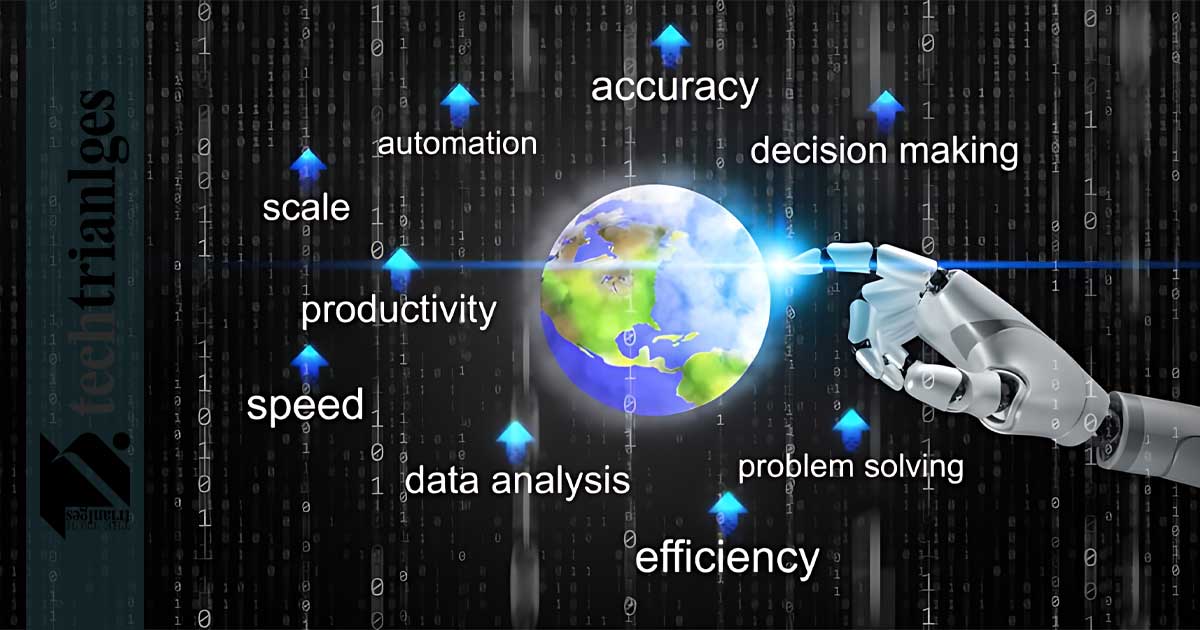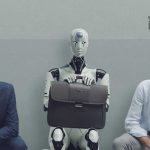Just like what happened with digital transformation, we spent years talking about change, its needs, the advantages, the challenges, etc. Artificial Intelligence already has fertile ground in specialized publications, professional forums, congresses, and other events and platforms responsible for disseminating the thousand and one benefits that Artificial Intelligence brings to the professional environment.
I see it clearly. The work environment of the future -and, even more, the society of the future- will be shared by humans and all kinds of devices, and applications equipped with Artificial Intelligence. I also believe that they will be the first, more responsible than the latter since they will be the ones in charge of designing and developing their technological successors. It may take a few years for this new technology to land in the general practice of companies, but it is undeniable that its contribution is already key to sectors as complex and, at the same time, as strategic, such as health, education, logistics, and transport or telecommunications.
But what is Artificial Intelligence really and, above all, what is it for? In short, AI is the combination of different techniques and algorithms in order to develop applications that have capabilities similar to those of human beings. What capabilities are those? Natural language, understanding, processing, empathy, or, roughly speaking, INTELLIGENCE -in the broadest sense of the word- as close as possible to humans.
But, coming down to earth again, the truth is that this is perhaps an overly ambitious definition and that it does not clearly reflect the current state of affairs, but rather a utopian desire for the future. To be more realistic, we could define Artificial Intelligence as an alternative way of programming, using stratospheric amounts of data so that, with the necessary training, they end up developing tasks that are traditionally more typical of humans. In other words, they are not only used to predict but also to advise or decide
How to make artificial intelligence less “artificial”?
Artificial Intelligence offers almost infinite possibilities of evolution. In other words, now that we are at the beginning of a new era, we already have practical applications that suggest a strategic, transformative, disruptive return… However, we are still in an incipient stage in which we are only capable of taking advantage of a thousandth part of what we can imagine.
But without a doubt, AI is reinventing the way we work, business strategies, and organizations’ understanding of the vast volume of data they have. Now, accepting that Artificial Intelligence will change the world, by providing greater knowledge, the truth is that one line in the evolution of this technology points more to intuition than to reasoning. And that is it, intuition, based on analogies rather than logical inferences, is the basis of what is known as deep learning.
In summary, and without going into detail about the differences between machine learning (automatic learning) or deep learning (deep learning) or the different degrees of AI that are known – from the reactive one capable of perceiving a situation and acting according to what it sees, focusing on a specific task (IBM’s Deep Blue), to the most advanced Intelligence, which becomes aware of itself and allows applications to interact socially or take into account their own feelings and those of others- Artificial Intelligence systems have to learn to replicate human behavior, avoid absolute truths, and provide interactions that are as natural as possible.
But, from that point, we are still too far away, so the focus should be placed, according to the experts, on the understanding of memory, learning, and the ability to base decisions on past experiences. This step is crucial to develop Artificial Intelligence solutions that are less “artificial” and a little more “natural”.
Positive experience and less complex management of artificial intelligence
I said at the beginning that Artificial Intelligence is already at the heart of many of the things that surround us. Beyond the image of a robot like R2-D2 or C-3PO, Artificial Intelligence contributes to the development of facial or voice recognition systems, it is the essence of search engines, translators, or antispam applications. , or virtual assistants or suggestions for products or services that we receive based on the personal tastes that we manifest, consciously or unconsciously, for example, when we browse the Internet, use our social networks, or purchase a certain product or service…
The algorithms that today shape Artificial Intelligence provide devices with the ability to learn automatically and in a continuous way, processing data and recognizing patterns, They will be increasingly precise and the allocation of resources will be more accurate.
The algorithms that are monitoring the data that the different systems or applications used by the companies produce these “normal” behavior patterns, so that when the systems go out of that normal behavior, what is going to happen next can be predicted ( that one of the systems is going to fail, for example), which allows companies to make decisions that anticipate these failures, making applications more precise, but above all the allocation of resources and infrastructure expenses, more efficient.
Therefore, it is undeniable that today, applications are much smarter than 20 years ago, and organizations know that they must make the most of the potential they offer to improve their processes, not only those that have to do with the client, but also productive or operational. They must make employees and systems communicate better to optimize their ratios of efficiency, productivity, and, therefore, competitiveness.
Thus, organizations, that are already moving towards a more predictive action and management model, will have hit the target, making their customers improve their user experience, while their professional teams will be able to carry out much simpler management, thanks to the implementation of a network that learns by itself.
Data, data, and more data
According to IDC, the base on which Artificial Intelligence is built, that is, the data stored, will continue to grow, as will the eternal debates on how to use and apply that information to make technological devices make decisions. Sorry: make GOOD decisions. Therefore, one of the keys for AI to land definitively in business has to do with the ability of organizations to analyze, in real-time and intelligently, the amount of data they handle and generate every second. because that will allow them to have a more exact knowledge about their own reality and that of their clients. And so act accordingly.
The truth is that technological changes have occurred extremely quickly, since the appearance of the Internet, the Cloud, or subsequent technologies such as Blockchain, IoT, or Data Analytics, the deployment of intelligent systems and devices is almost exponential, despite the fact that AI remains a discipline in permanent development. In this sense, we still have many challenges ahead. In fact, although the increase in the information processing capacity of these devices, together with the enormous amount of data that is generated daily, contributes to making the algorithms more precise, the truth is that this does not imply that they are also more ethical…
Regarding the ethics of intelligent systems, it must be said that Telefonica has been a pioneer in the world by approving last year a series of guidelines that aim toward equality, transparency, clarity, privacy, and security in the markets in which That operates. The general respect for these ethical principles helps to avoid the creation and dissemination of already famous fake news or the reinforcement of social bias in algorithms. According to a study published by Science magazine in 2017, some AIs become macho when using words that imply that sexist charge.
In short, it is clear that the rules of the game have changed, the elimination of economic, legal, and technical barriers has eroded the strengths of conventional players; low-cost digital alternatives slow down the growth of traditional ones and an increasingly disloyal customer, as well as obsolete infrastructures, make it difficult for many companies to advance and grow. But, public, private, large, medium, and small companies have a golden opportunity in AI to retain their customers and attract new users. The barrier, yes, is in the difficulty of finding professionals with experience in Artificial Intelligence technologies, whether data scientists, big data developers, or data analysts, and, above all, linguistic experts, who are increasingly in demand.
In this sense, IDC predicts that 50% of repetitive tasks within 5 years will be automated and that 20% of specialized workers will have the help of a digital assistant. Therefore, it is clear that the focus will have to be placed on the search for expert talent, but also on the internal development of skills and knowledge or on the contributions of technological partners to continue advancing in learning and developing solutions. which, as we are seeing, will continue to change the world.








